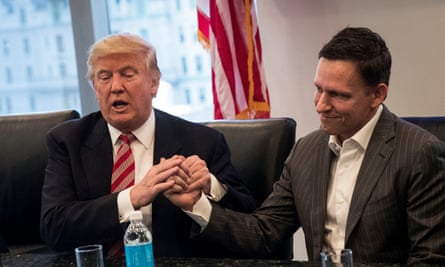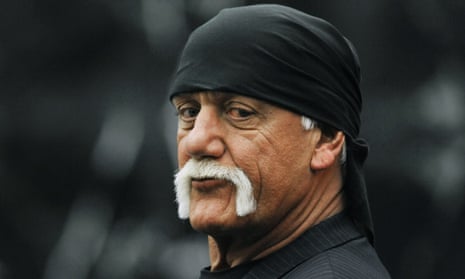The extraordinary case of Hulk Hogan’s 2015 legal action against the gossip website Gawker is far shadier, far creepier than many appreciate. Certainly, I didn’t realise that, until I saw this punchy documentary which sites it in a new context. The Hogan attack was a vanguard operation in the aggressive new reactionary philistinism and hatred of press freedom being nurtured by some of America’s super-rich which is encouraged as a political diversionary tactic by the US president.
The wrestler sued Gawker for posting a sex tape of him with his best friend’s wife – the video was allegedly made and distributed without his knowledge. Much later, it was revealed that the suit was secretly bankrolled by the Silicon Valley billionaire, Ayn Rand-ist libertarian and Trump supporter Peter Thiel – apparently in revenge for Gawker outing him as gay. So far, so debatable. There are many who feel that both Hulk and Thiel were entitled to privacy and had no great sympathy for Gawker and its trashy, bitchy stories. But this film shows that there is ample evidence that Hogan knew that the tape was being made and was ready to let it accidentally-on-purpose emerge to promote his reality-TV career, panicking only when he thought that a longer version would become public, revealing his racist language. As for Thiel he was already furious at Gawker’s ValleyWag column and its continual, irreverent criticism of him and his financial performance, and had, in any case, a highly authoritarian contempt for the democratic impulses of the press. Thiel and Hogan won a staggering $140m in damages, enough to knock over first amendment issues and put Gawker out of business.
The point was that Thiel is part of an arrogant breed of plutocrat who, having reached the sunlit uplands of extreme wealth and status, is irritated beyond endurance at the existence of press types who still dare to look too carefully into his business dealings. The Hulk Hogan case was a brilliantly chosen strategic sortie: a precedent-setting attack on a news site which couldn’t count on much instant sympathy. Donald Trump is the incarnation of that attitude, recklessly and dangerously encouraging the crowd at his rallies to turn on reporters, declaiming about dishonest media and fake news. Thiel, as a star supporter, speaks at Trump events and has appeared at media conferences with him. He is also the co-founder of the ambitious big data company Palantir, whose shady political influences have been investigated by Carole Cadwalldr in the Observer.
The movie doesn’t mention it, but Britain has experience of this kind of thing. Sir James Goldsmith attempted to crush Private Eye in 1976 in a style very similar to Thiel, avowedly for suggesting he might have protected fugitive murder suspect Lord Lucan. He was, of course, also enraged by its many other criticisms and jokes. Goldsmith’s bullying legal attack failed. But Thiel succeeded.

This film sets the case alongside a more conventional attempt to control the press, that is simply to own it – also what the super-rich plutocrats love to do. In 2015, the Las Vegas Review-Journal was bought by the aggressively litigious casino mogul Sheldon Adelson, who incredibly tried to keep his identity as buyer a secret. The paper’s reporters themselves had to ferret out the truth. The new management promptly declared that star columnist John L Smith could no longer write about Adelson, who had in fact already sued him. Most of the paper’s talent quit, but it was an extraordinary putsch.
As for Trump, it is notable that he considers himself something of a one-man press baron, by virtue of his millions of Twitter followers – a situation he compares to owning a newspaper without the losses. His contempt for the press, aside from what may be revealed about Russia, is an almost hysterical expression of his hatred of criticism – a lèse-majesté he always resented as both boardroom blowhard and TV star. Now Trump wants to loosen the libel rules for wealthy plaintiffs (who of course have always found the UK a more congenial place to launch lawsuits). This documentary is an invigorating, disturbing portrait of the arrogance and sinister self-importance of rich people, bullying politicians and their battalions of lawyers.

Comments (…)
Sign in or create your Guardian account to join the discussion